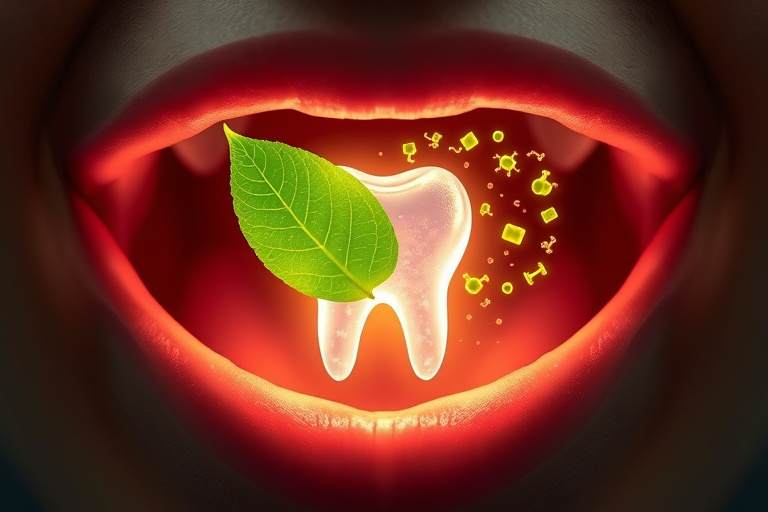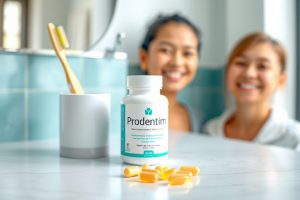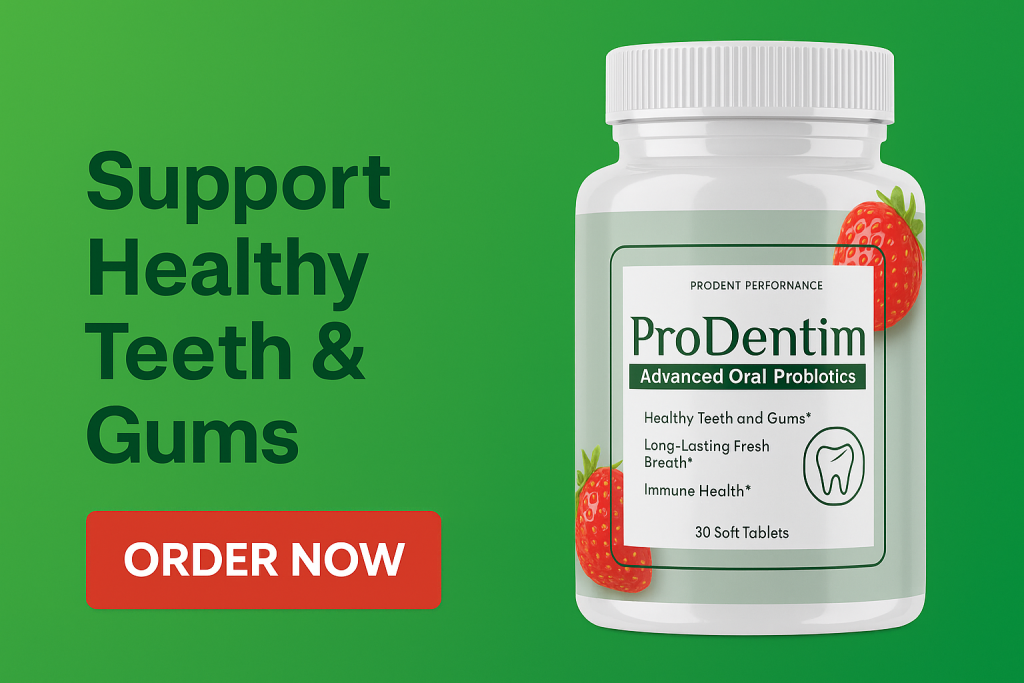Introduction: Comparing Probiotic Oral Care and Fluoride Toothpaste for Optimal Dental Health
Maintaining good oral hygiene is essential for overall health, and choosing the right dental care products plays a significant role in this. Traditionally, fluoride toothpaste has been the go-to solution for cavity prevention and enamel strengthening. However, in recent years, probiotic oral care products like Prodentim have gained popularity as a natural alternative or supplement. This growing interest prompts a comparison between these two approaches to determine which might be better suited for your dental health needs.
Understanding Prodentim Probiotics: How Do They Work in Oral Hygiene?
Prodentim is a probiotic-based oral care product designed to introduce beneficial bacteria into the mouth. Unlike traditional toothpaste that relies primarily on chemical agents, probiotics aim to restore and maintain a healthy balance of oral microbiota. These beneficial bacteria compete with harmful pathogens, reducing plaque formation and bacterial overgrowth that can lead to cavities and gum disease.
The science behind probiotic oral care suggests that maintaining a balanced microbiome is crucial for preventing dental issues. By populating the mouth with good bacteria, probiotics can inhibit the growth of decay-causing bacteria, promote healthier gums, and potentially reduce bad breath. Scientific insights into probiotic mechanisms indicate that these beneficial microbes can produce enzymes and antimicrobial substances that support oral health, making them a promising adjunct or alternative to traditional methods.
The Benefits of Fluoride Toothpaste: Proven Effectiveness in Cavity Prevention
Fluoride has long been recognized for its ability to strengthen tooth enamel and prevent dental decay. When applied regularly through toothpaste, fluoride helps to remineralize areas of early decay and makes teeth more resistant to acid attacks from bacteria in the mouth. Extensive research supports fluoride’s role in reducing the incidence of cavities, especially in children and populations with high sugar intake.
Beyond cavity prevention, fluoride also offers additional benefits such as repairing minor enamel damage and reducing tooth sensitivity. Its proven track record makes it a staple in most dental care routines worldwide, backed by decades of scientific evidence demonstrating its safety and efficacy.
Comparing the Efficacy: Can Probiotics Match or Surpass Fluoride’s Results?
Research into probiotics’ impact on oral health is ongoing, with some studies indicating positive effects on plaque reduction, bacterial balance, and even cavity prevention. For example, certain probiotic strains have been shown to decrease levels of harmful bacteria associated with caries and periodontal disease.
However, head-to-head comparisons between probiotics and fluoride-based products are limited. While probiotics show promise in improving overall oral microbiome health and reducing inflammation, their ability to prevent cavities as effectively as fluoride remains under investigation. Currently, probiotics are often viewed as a complementary approach rather than a complete replacement for fluoride in long-term cavity prevention.
For those interested in exploring probiotic options, it’s advisable to consult with dental professionals to determine the best integrated approach for maintaining oral health.
Safety Considerations for Probiotic Oral Care and Fluoride Toothpaste
Both probiotics and fluoride have safety profiles that are generally considered acceptable when used appropriately. Probiotics in oral care are typically well-tolerated, with minimal risk of side effects, though individuals with compromised immune systems should consult healthcare providers before use.
Fluoride, on the other hand, has raised concerns regarding fluorosis and toxicity if ingested in large quantities. While topical fluoride application is safe for most people, excessive ingestion—especially in children—can lead to dental fluorosis or other health issues. Therefore, selecting appropriate fluoride levels and supervising children’s use is important.
Individuals with specific health conditions or sensitivities should discuss their options with dental or medical professionals to choose the safest and most effective product for their needs.
Natural and Holistic Approaches to Dental Care: Are Probiotics the Future?
Many consumers seeking natural health solutions are drawn to probiotic-based products due to their emphasis on restoring natural microbial balance. Compared to chemical formulations in fluoride pastes, probiotics offer a more holistic approach, aligning with trends toward natural and minimally processed ingredients.
This shift reflects a broader movement in oral care towards holistic health, emphasizing the importance of maintaining a balanced microbiome and reducing exposure to synthetic chemicals. As research advances, probiotics may become a more prominent component of natural oral health routines.
Long-Term Benefits: Are Probiotics a Sustainable Choice for Continuous Oral Health?
Evidence suggests that probiotics can provide lasting benefits by supporting a healthy oral microbiome over time. Regular use may help sustain beneficial bacterial populations, reduce recurrent plaque buildup, and promote healthier gums.
Combining probiotics with traditional methods like fluoride toothpaste can offer a comprehensive strategy—leveraging the proven cavity prevention of fluoride while enhancing overall microbial health through probiotics. This integrated approach may optimize long-term oral health outcomes.
What Do Scientific Studies Say About Probiotics vs Fluoride for Oral Health?
Recent clinical trials and research reviews highlight the potential of probiotics to improve oral health, particularly in reducing plaque and gingivitis. However, the evidence regarding their ability to prevent cavities as effectively as fluoride is still emerging. Limitations include small sample sizes and variability in probiotic strains used.
Experts generally agree that while probiotics are promising, they should complement rather than replace fluoride-based products, especially for cavity prevention. Incorporating probiotics into daily routines can be beneficial, but ongoing research is necessary to fully establish their efficacy.
Consumer Insights: Effectiveness and Satisfaction with Probiotics and Fluoride Toothpaste
Many users report satisfaction with probiotic products, citing improvements in breath freshness and gum health. Conversely, fluoride toothpaste remains favored for its straightforward cavity prevention and proven results. Consumer preferences are influenced by factors such as natural ingredient preferences, sensitivities, and individual experiences.
Scientific evaluations support these perceptions, emphasizing that choosing the right product depends on personal health goals and conditions.
Final Thoughts: Making an Informed Choice for Your Dental Care Needs
Both probiotics like Prodentim and fluoride toothpaste offer distinct benefits for oral health. Fluoride’s proven effectiveness in cavity prevention makes it a reliable choice for many, while probiotics present a natural, microbiome-friendly alternative or supplement that may enhance overall oral health.
Ultimately, the best approach depends on individual needs, preferences, and health considerations. Consulting with dental professionals can help tailor a routine that aligns with your specific dental care goals, ensuring optimal results for your long-term oral health.




